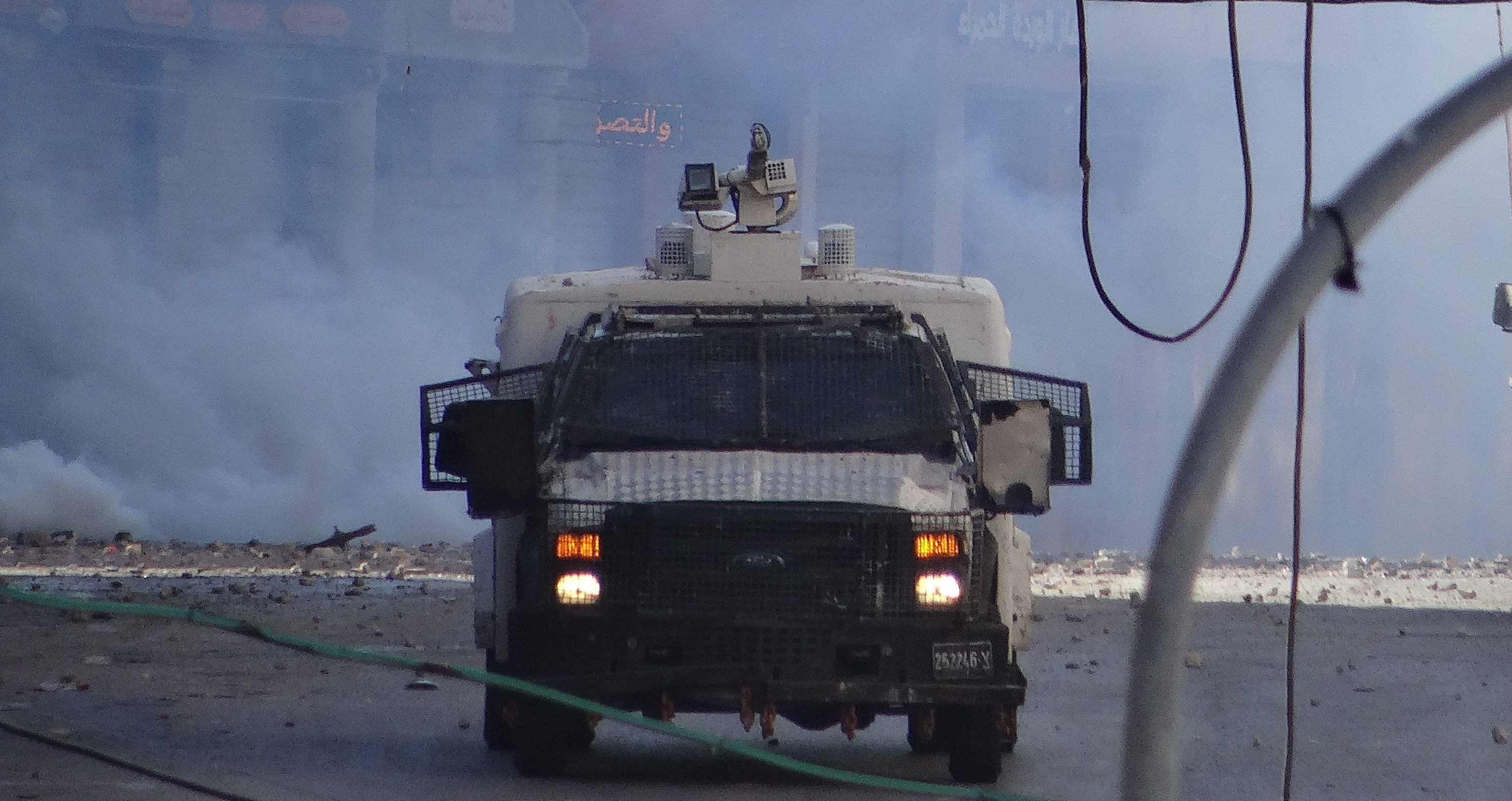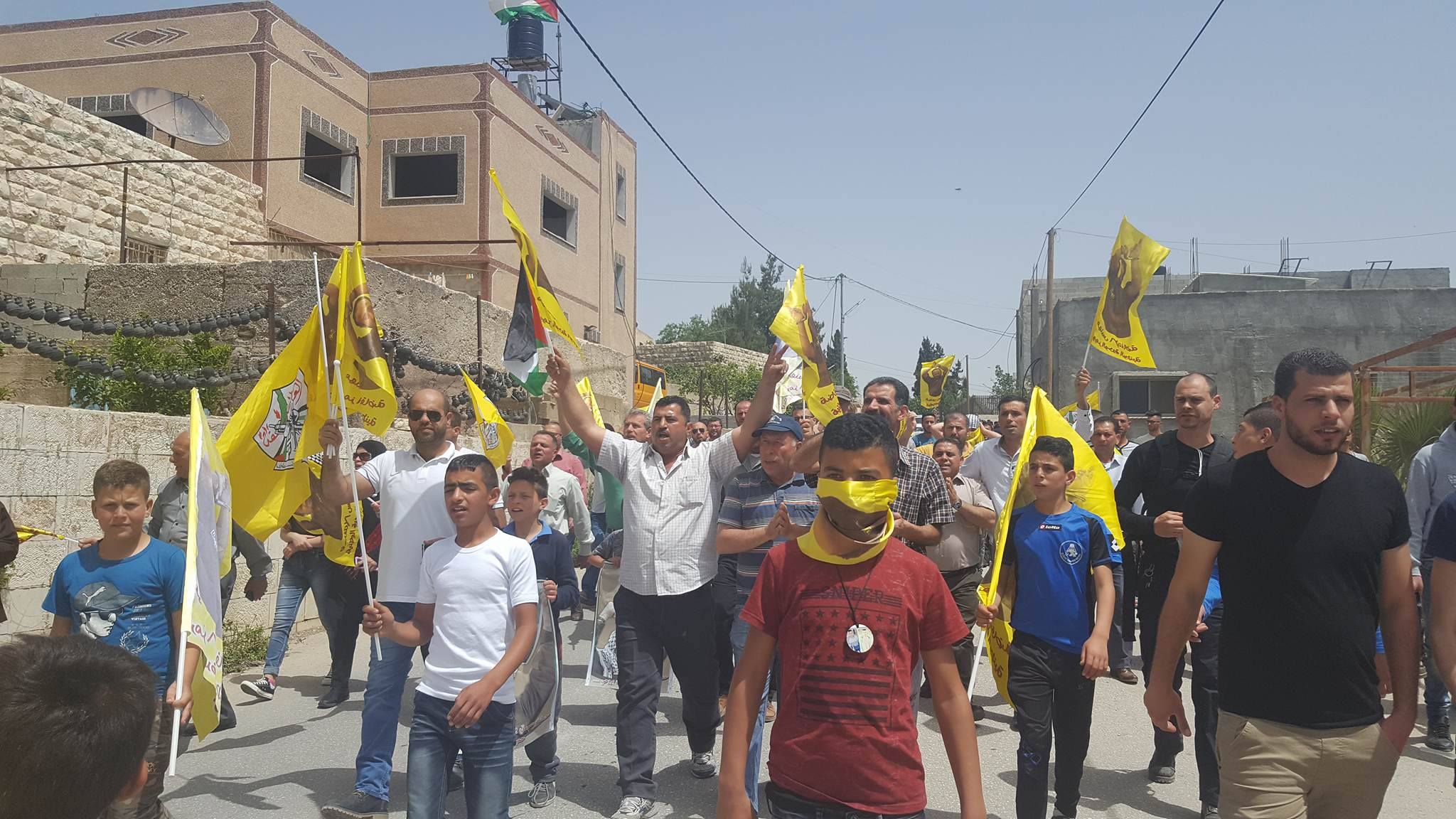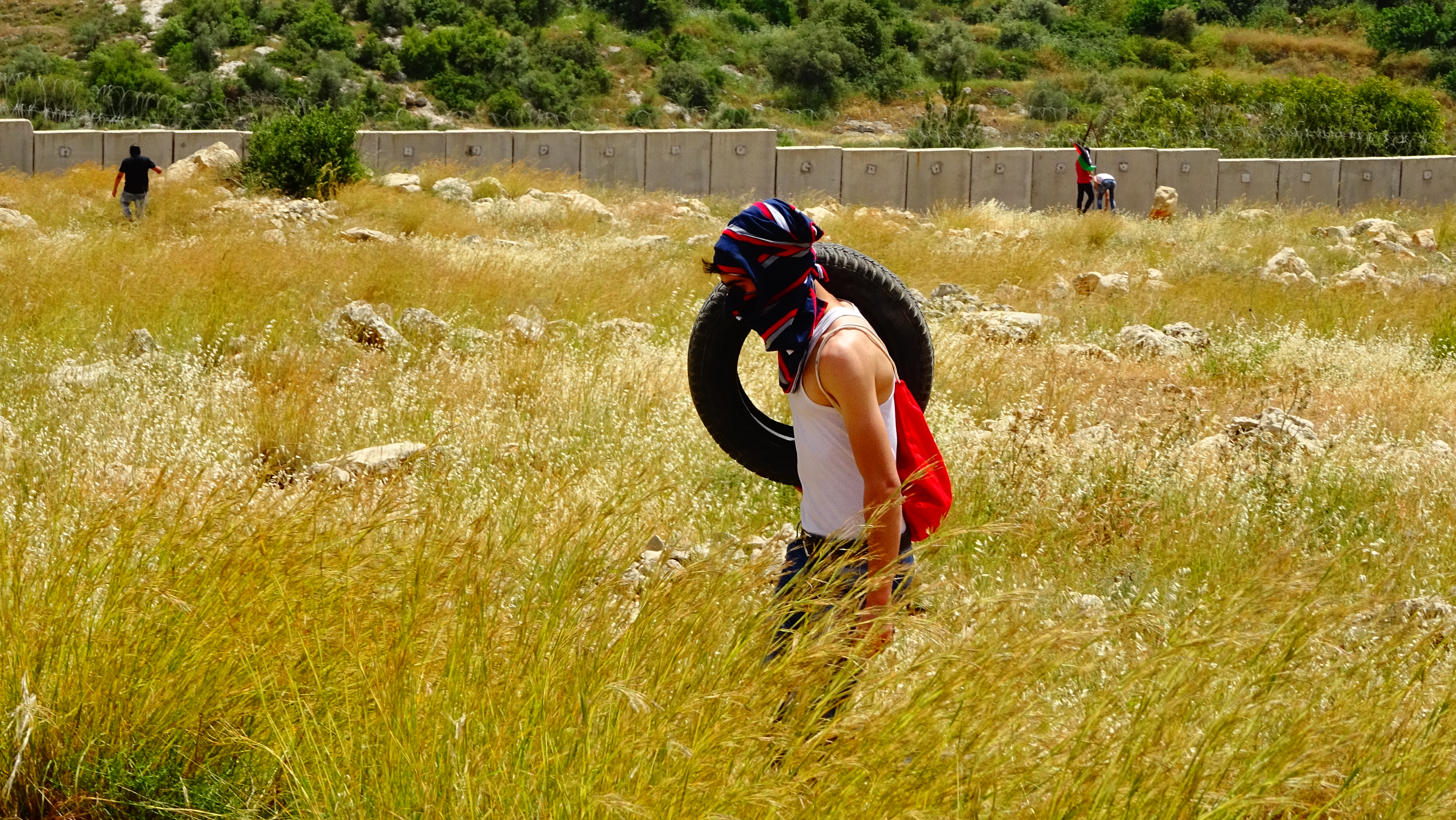Category: Reports
-
Two days of clashes in al-Khalil in connection with prisoners’ hunger strike
30th April 2017 | International Solidarity Movement, Khalil Team | al-Khalil (Hebron), occupied Palestine Heavy clashes broke out during two consecutive days as Israeli forces stormed the Bab Al-Zawiah neighborhood in al-Khalil, attacking young Palestinians protesting in solidarity with the ongoing prisoners’ hunger strike. It resulted in multiple persons being injured, caused by live ammunition…
-
Nabi Salih marches in solidarity with Palestinian prisoners on hunger strike
22nd April 2017 | International Solidarity Movement, Ramallah Team | Nabi Salih, occupied Palestine On Friday 21st April, a demonstration held in solidarity with Palestinian prisoners on hunger strike was violently supressed by Israeli forces at Nabi Salih, occupied West Bank. Teargas, rubber-coated steel bullets, and live rounds were fired at demonstrators by Israeli forces…
-
Protesters forced to retreat at peaceful demonstration in Ni’lin
22nd April 2017 | International Solidarity Movement, Ramallah team | Ni’lin, occupied Palestine On April 21st a crowd of Palestinian protesters, joined by international and Israeli activists, gathered for the weekly demonstration in Ni’lin. The peaceful demonstration began after Friday prayer, with the protesters marching to the Apartheid Wall built at the expense of hundreds of…



